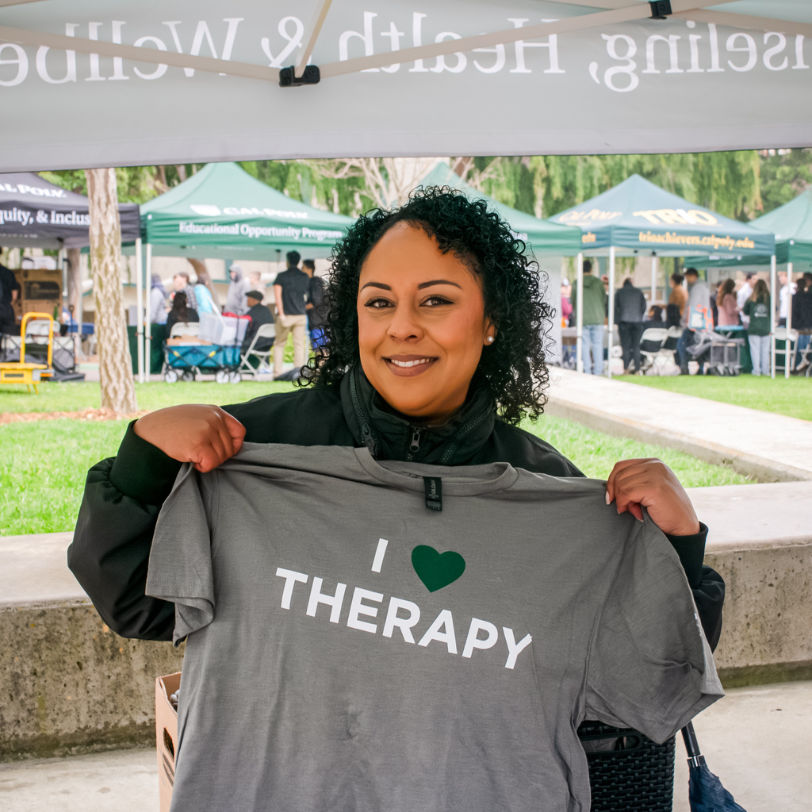Student Veterans
Welcome Veterans!
Cal Poly Counseling Services is grateful for your service and selfless sacrifice and is dedicated to your success as a Cal Poly student. The transition from a military to academic lifestyle can pose a number of unique challenges. We are committed to supporting Cal Poly student veterans, National Guard, and Reserve members in their successful navigation of this transition and integration into the campus community.
The information provided on this site is not exhaustive; there are a wide variety of experiences veterans may have in transitioning. Additionally, it should not be assumed that all returning veterans experience serious mental health concerns. The purpose of this information is to help build a general understanding of some of the more common challenges veterans may face as they transition to academic life, provide information to aid this transition, and to promote awareness of resources available to veterans to support their general well-being and academic success at Cal Poly.
Challenges Faced by Student Veterans
- Developing an identity other than as a Marine, Soldier, Sailor, Airman, or Coastguardsman
- Making meaning of both past and present activities
- Boredom (missing the adrenaline rush of combat; finding meaning in activities that are not life-or-death)
- Navigating cultural differences between military and higher education systems (knowing what resources to seek out from which departments; addressing others in authority)
- Feeling safe on campus (e.g., finding a seat in a classroom that allows for monitoring of others in the room and rapid escape)
- Balancing multiple roles (e.g., spouse, partner, parent, son/daughter, student)
- Difficulty relating to traditional college students; feeling alienated on campus
- Difficulty with the lack of structure in civilian life
Signs Counseling May Be Helpful
- Frequently feeling on edge or tense, on guard or hyperaware of your surroundings
- Being easily startled by loud noises and/or sudden movements
- Intense distress after exposure to reminders of combat (e.g., trash on the side of the road; heat; smells; or sounds)
- Recurring intrusive memories and/or dreams about combat experiences
- Avoidance of reminders of combat (e.g., news reports; driving)
- Feeling numb or having difficulty expressing a full range of emotions
- Feeling disconnected, distant, or detached from friends, family, and/or peers
- Frequent anger, irritability, and/or rage
- Difficulty falling or staying asleep
- Lack of interest or pleasure in activities you once enjoyed
- Feeling sad or down for weeks or months at a time
- Feelings of helplessness/hopelessness
- Guilt or anger at oneself for being unable to prevent the death of others; for actions or inactions; for perceived errors that may have resulted in harm or death; or for surviving when others died
- Suicidal thoughts, feelings, or behaviors
- Abuse of alcohol and/or other drugs
Self Care and Tips to Facilitate Transition
- Allow yourself time and space to navigate this transition; gradually assume more responsibilities over time
- Prepare for questions about your service by practicing responses in advance
- Allow yourself time to grieve for and honor those who did not make it back
- Maintain a basic self-care regiment (exercise, sleep, nutrition)
- Try relaxation, deep breathing, meditation, or mindfulness techniques (the Recognition, Insight, Openness (RIO) group can help you learn these skills)
- Limit use of alcohol and other drugs
- Reestablish relationships and renegotiate roles with family members; seek out family or friends for support
- Talk to other veterans, visit the Veterans Success Center, and/or join the Student Veterans Association
- Find ways to connect with your values, passions or hobbies
- Connect with a mentor, spiritual or religious advisor, counselor, or mental health professional
- Distract yourself—watch TV, a movie, read a non-academic book
- Take advantage of online tools and cell phone apps that may provide coping resources
- Find study partners
- Develop good academic habits



